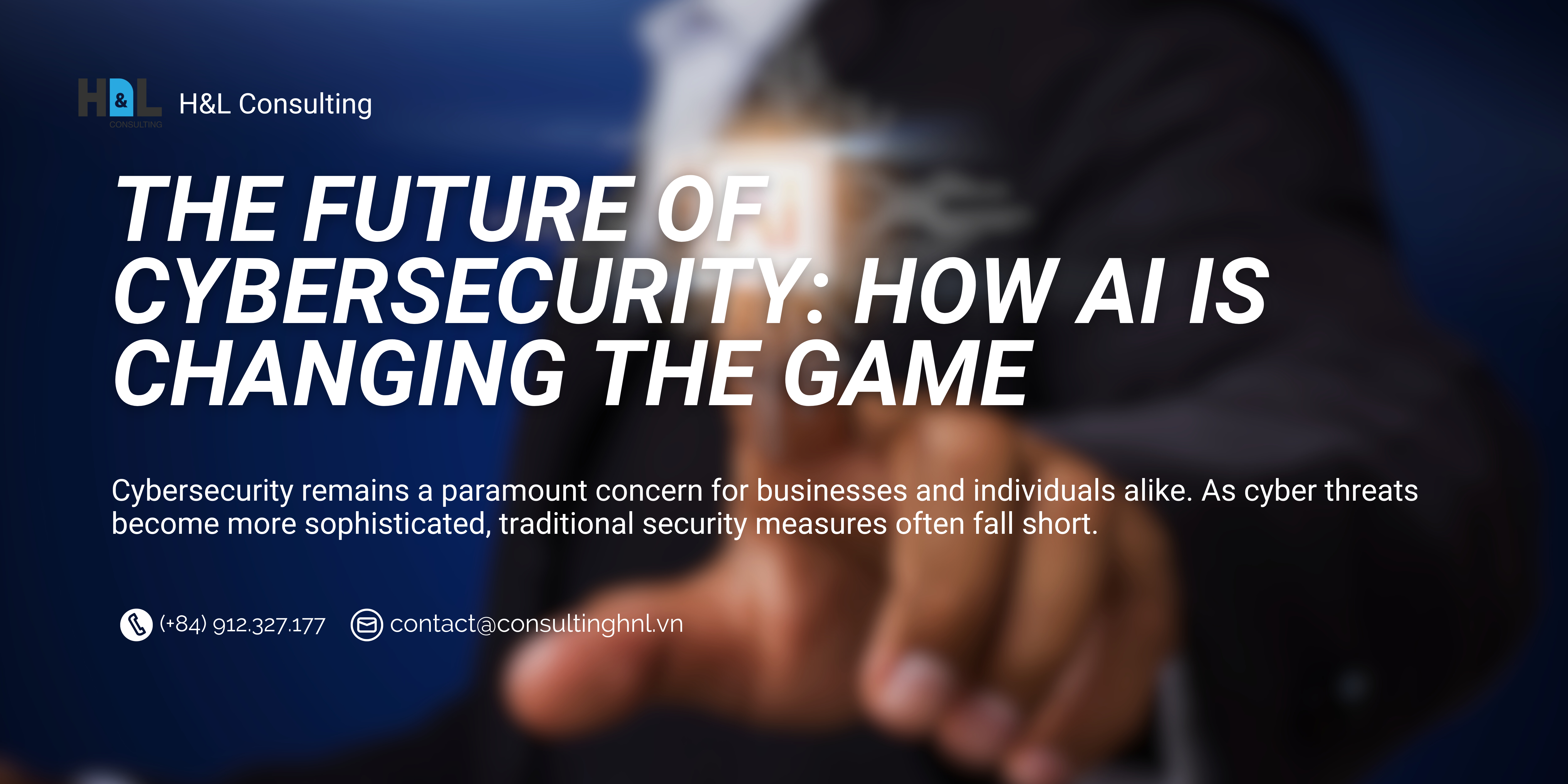In the changing landscape of technology, cybersecurity remains a paramount concern for businesses and individuals alike. As cyber threats become more sophisticated, traditional security measures often fall short. Enter Artificial Intelligence (AI), a game-changer in the realm of cybersecurity. This blog post explores the future of cybersecurity and how AI-driven security solutions are poised to revolutionize the field.
AI In Cybersecurity: A New Era Of Defense
Artificial Intelligence has emerged as a powerful ally in the fight against cyber threats. Unlike traditional security systems that rely on predefined rules, AI leverages machine learning algorithms to detect anomalies and predict potential attacks. This proactive approach is transforming the cybersecurity landscape, offering enhanced protection against an ever-growing array of threats.
The Role Of AI In Cybersecurity
AI in cybersecurity encompasses a range of applications, from threat detection and response to vulnerability management and beyond. Here are some key areas where AI is making a significant impact:
Threat Detection and Response: AI-powered systems can analyze vast amounts of data to identify patterns indicative of cyber threats. Machine learning algorithms learn from historical data, enabling these systems to detect anomalies that may signal an impending attack. This capability allows for faster and more accurate threat detection, reducing the time between breach and response.
Vulnerability Management: AI-driven tools can continuously scan for vulnerabilities in networks and systems. By prioritizing vulnerabilities based on potential impact, these tools help organizations address the most critical issues first, enhancing overall security posture.
Behavioral Analysis: AI systems can monitor user behavior to identify deviations from the norm. For instance, if an employee’s account suddenly begins accessing sensitive data at unusual times, AI can flag this behavior for further investigation, potentially thwarting an insider threat.
Automated Incident Response: In the event of a security breach, AI can automate incident response processes, such as isolating affected systems, alerting security teams, and initiating remediation steps. This automation reduces the burden on human analysts and speeds up response times.
Future Of Cybersecurity: Trends Shaping The Industry
The integration of AI in cybersecurity is driving several key trends that are shaping the future of the industry. Here are some of the most notable trends to watch:
Increased Adoption of AI-driven Security Solutions: As AI technology continues to advance, more organizations are adopting AI-driven security solutions to bolster their defenses. These solutions offer a level of speed and accuracy that traditional methods cannot match, making them an attractive option for businesses of all sizes.
Enhanced Threat Intelligence: AI is revolutionizing the way threat intelligence is gathered and analyzed. By sifting through vast amounts of data from various sources, AI can provide deeper insights into emerging threats, enabling organizations to stay ahead of cybercriminals.
Rise of Autonomous Security Systems: The future of cybersecurity may see the rise of fully autonomous security systems that can detect, respond to, and mitigate threats without human intervention. These systems would be capable of continuous learning and adaptation, providing a robust defense against ever-evolving cyber threats.
AI-powered Security Operations Centers (SOCs): Traditional Security Operations Centers are often overwhelmed by the sheer volume of alerts they must process. AI-powered SOCs can help manage this workload by automating routine tasks, allowing human analysts to focus on more complex issues.
Collaboration Between AI and Human Experts: While AI brings significant advantages to cybersecurity, it is not a silver bullet. The future of cybersecurity will likely involve a collaborative approach, where AI tools work alongside human experts to provide a more comprehensive defense strategy.
AI Cybersecurity Tools: Innovations Driving Change
The development of AI cybersecurity tools is a dynamic and rapidly growing field. Here are some innovative tools that are driving change in the industry:
AI-driven Firewalls: Traditional firewalls rely on predefined rules to block or allow traffic. AI-driven firewalls, on the other hand, use machine learning to adapt to new threats in real-time, providing a more dynamic and effective defense.
Intrusion Detection Systems (IDS): AI-powered IDS can analyze network traffic to detect suspicious activity. These systems can identify previously unknown threats by recognizing patterns that deviate from normal behavior.
Endpoint Detection and Response (EDR): AI-driven EDR solutions monitor endpoints (such as laptops, desktops, and mobile devices) for signs of malicious activity. By leveraging machine learning, these tools can detect and respond to threats more quickly than traditional methods.
Phishing Detection Tools: Phishing attacks remain a significant threat to organizations. AI-powered phishing detection tools can analyze emails and websites to identify signs of phishing attempts, helping to protect users from falling victim to these scams.
User and Entity Behavior Analytics (UEBA): UEBA tools use machine learning to monitor user and entity behavior within an organization. By establishing a baseline of normal behavior, these tools can detect anomalies that may indicate a security breach.
Cybersecurity Trends: Preparing For The Future
As we look to the future, several trends are expected to shape the cybersecurity landscape. Organizations must stay informed about these trends to effectively prepare for and respond to emerging threats. Here are some key trends to watch:
Growing Importance of Data Privacy: With increasing regulations around data privacy, organizations must ensure that their cybersecurity measures are compliant with laws such as the General Data Protection Regulation (GDPR) and the California Consumer Privacy Act (CCPA). AI can help by automating compliance processes and ensuring that sensitive data is protected.
Integration of AI with Blockchain: The integration of AI with blockchain technology holds promise for enhancing cybersecurity. Blockchain’s decentralized nature makes it difficult for cybercriminals to alter data, while AI can provide real-time threat detection and response capabilities.
Focus on Zero Trust Security: The Zero Trust security model, which assumes that threats can come from both outside and inside the network, is gaining traction. AI can play a crucial role in implementing Zero Trust by continuously monitoring and verifying the identity and behavior of users and devices.
Emphasis on Cybersecurity Training: As cyber threats become more sophisticated, there is a growing need for cybersecurity training and awareness programs. AI can assist by providing personalized training programs and simulating cyberattack scenarios to prepare employees for real-world threats.
Advancements in Quantum Computing: While still in its early stages, quantum computing has the potential to revolutionize cybersecurity. AI algorithms running on quantum computers could solve complex problems faster than classical computers, providing new opportunities for threat detection and encryption.
Conclusion: Embracing AI-Driven Security Solutions
The future of cybersecurity is undoubtedly intertwined with the advancements in AI technology. As cyber threats continue to evolve, AI-driven security solutions offer a promising path forward. By embracing these innovations, organizations can enhance their defenses, stay ahead of emerging threats, and secure their digital assets.
In this ever-changing landscape, it is crucial for businesses to remain proactive and informed about the latest cybersecurity trends and tools. The integration of AI in cybersecurity is not just a trend but a necessity for staying resilient in the face of increasingly sophisticated cyber threats.
As we move forward, the collaboration between AI and human experts will be key to developing robust cybersecurity strategies. Together, they can create a safer digital environment, ensuring that businesses and individuals can navigate the digital world with confidence.
To learn more about how AI-driven security solutions can protect your business, contact H&L Consulting today. Our team of experts is ready to help you navigate the future of cybersecurity and implement cutting-edge AI tools to safeguard your digital assets.









